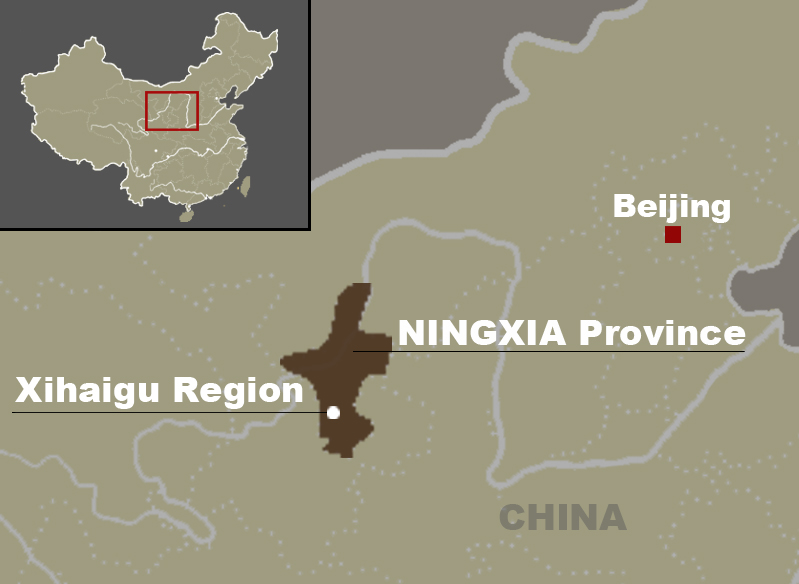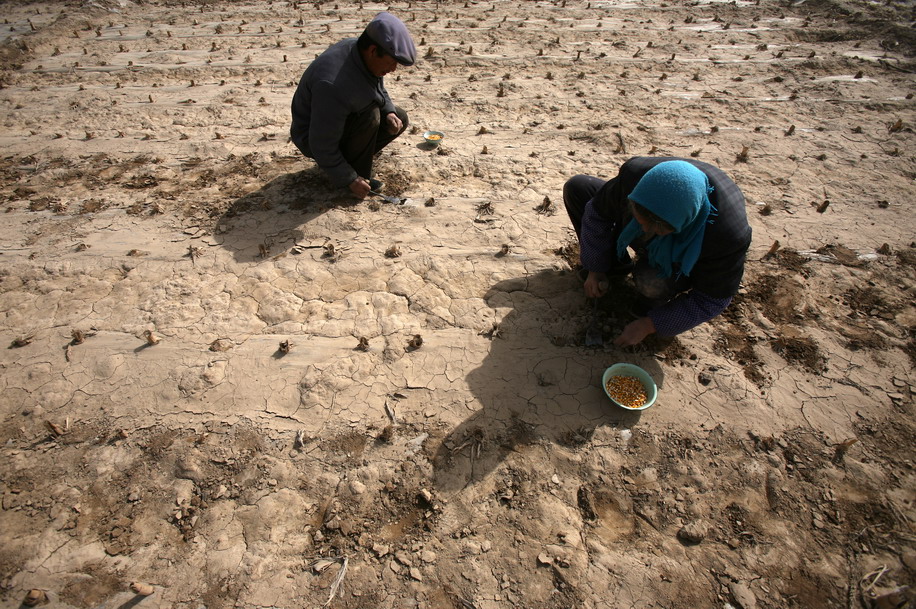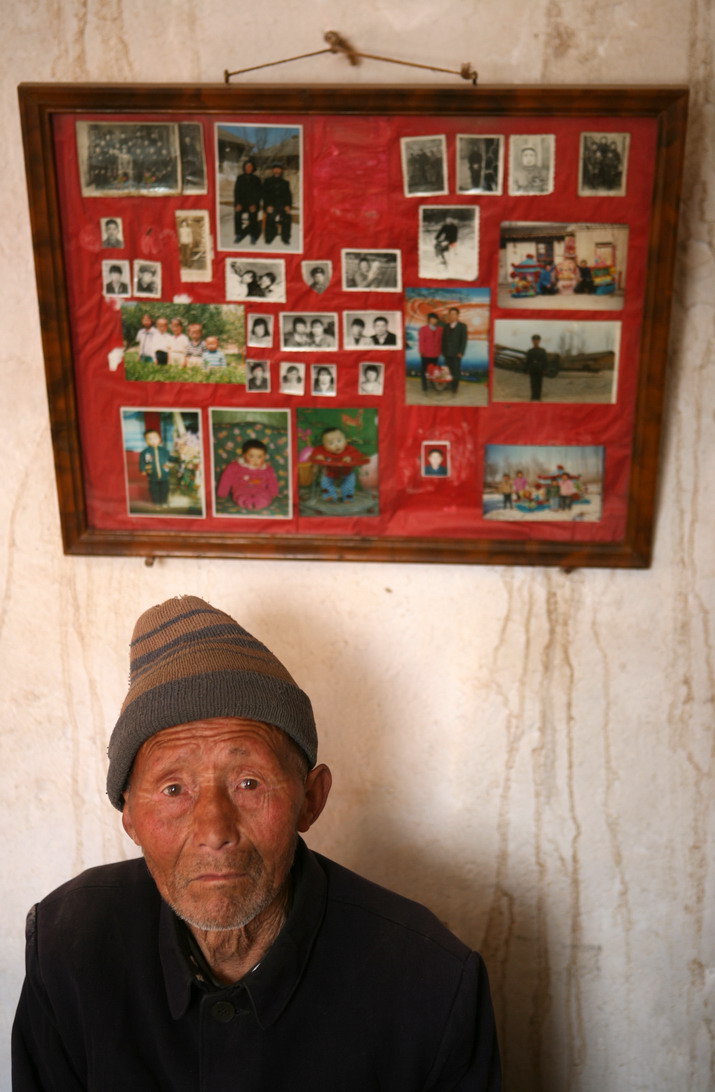
Xihaigu region in Ningxia province - a Hui autonomous region - has been termed as one of the most unsuitable places on earth for human habitation.

After seeding corns into the baked and cracked farmland, farmers can only hope for the best.

A frame full of photos of happy faces, itself nailed to a mud wall, contrasts sharply with the solitude of an old man sitting in a corner of his dilapidated house.
The old man, like many elderly in his village located in northwest China's Ningxia Hui autonomous region, has worked for years in faraway cities. In old age, no longer able to work, he returns, and younger members in the family replace him. This has been the cycle of life in Xiliang village for decades.
The southern Xihaigu region of Ningxia– comprised of areas around Xiji, Haiyuan, and Guyuan – has been named one of the most unsuitable places for human habitation since 1972 by the United Nations' Food and Agriculture Organization. Its dry, cracked land hardly yields enough to feed the meager population toiling its fields. The already water-scarce region is further plagued by prolonged drought, with evaporation losses ten times the rainfall rate. Some villagers spend 300 yuan per month just to buy and transport drinking water from other areas.
A 2006 survey found the region to be the home base of 280,000 farmers, of whom 240,000 or over 85 percent have become migrant workers in cities hundreds of kilometers away. Today, only the aged and the young remain, the latter left in the care of their grandparents.
| 1 | 2 |
- Life in Symbiosis | 2007-12-14
- For Low-income Housing, Head to the Hills | 2007-12-07
- Closing the Income Inequality Gap | 2007-03-16











